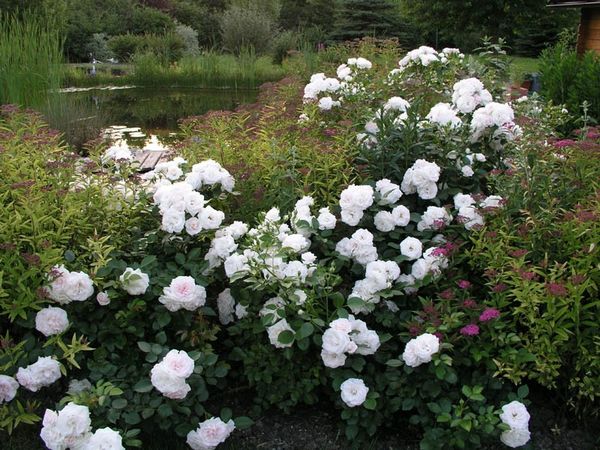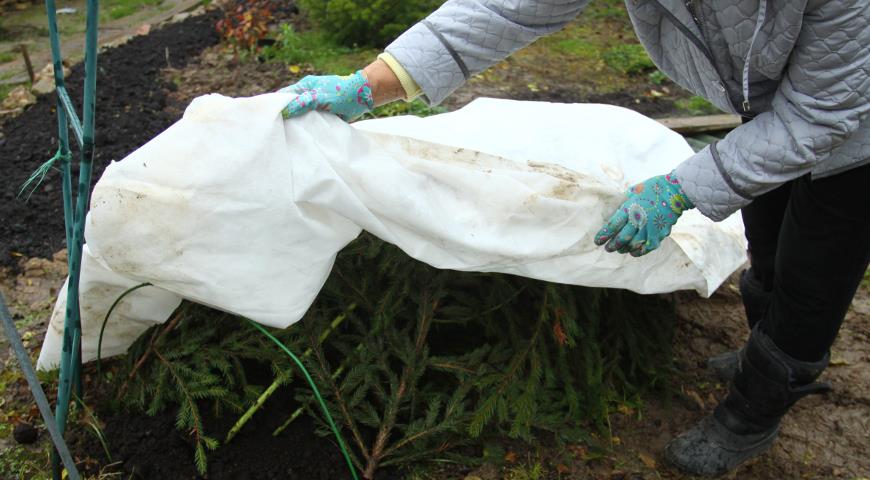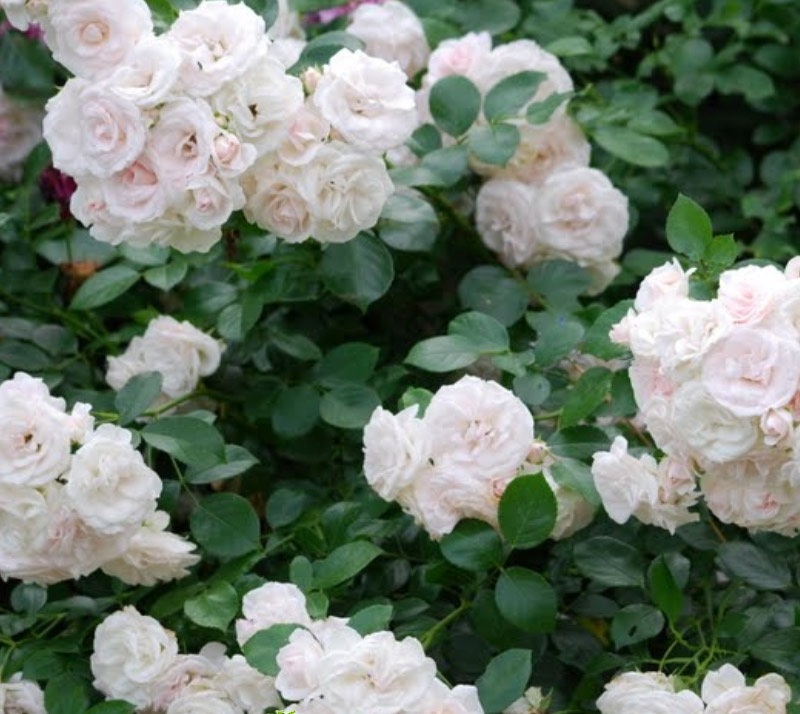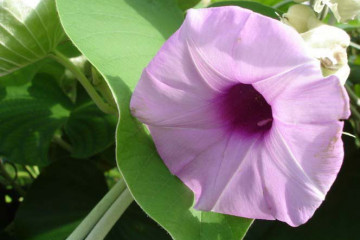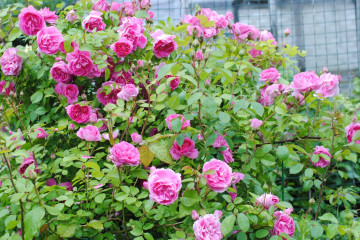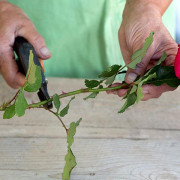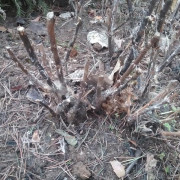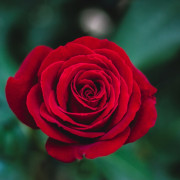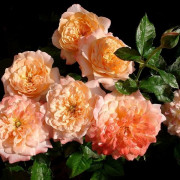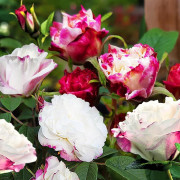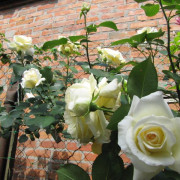Rose Aspirin
Content:
Every gardener wants his site to look beautiful, so many plant roses. One of the most interesting varieties is the Aspirin rose. The article gives a description of the plant, tells about the rules of cultivation and care, and pays attention to possible problems.
Rose Aspirin: general information
Aspirin is known for its resistance to weather and pests. In general, this is a ground cover flower, but gardeners manage to plant it both as a miniature rose and as a compact shrub or floribunda. The bush reaches 80 cm in height. Each stem has 5 to 10 flowers, which do not exceed 7 cm.
The advantages of growing this species:
- In winter, there is no need to be afraid that the plant will die if it is not insulated very much.
- It is very rare when the floribunda rose Aspirin suffers from pests and diseases.
- The flower throws off the leaves before they begin to dry out. Thus, the plant cleans itself and saves energy for the growth of its flowers. For the owner of a rose bush, this is also a plus, because the bush always looks neat and tidy.
- It can bloom even in the absence of the sun. In this case, the color changes slightly - instead of white it becomes pinkish.
The disadvantages can be considered:
- A rose is resistant to climatic conditions, if it is provided with high-quality, light and fertile soil - otherwise it will bloom poorly.
- Some gardeners do not really like that at the end of flowering, the middle of the bud takes on a darkish tint.
- For some, there is a problem due to loosening. This is difficult to do due to the large number of shoots.
In general, gardeners note that the benefits significantly outweigh the disadvantages, which are mostly subjective.
Use in landscape design
Rose Aspirin is one of the most beautiful ornamental plant varieties. Landscape designers can always count on it.
The rose bush is very often planted in the rose garden, among other members of the family. However, it is not always brought to the fore.
She also looks very beautiful on her own, without neighbors. The Aspirin variety is planted along the paths, near the entrance to the house or plot.
Growing a flower
The planting site is not very important for the flower itself. The plant feels good both in the sun and in the shade. Therefore, usually a rose is planted in front of the windows of a house or a place that often catches the eye to admire it.
The Aspirin variety needs light and fertile soil. You can buy it from a garden store, but you can also make it yourself.
For this you will need:
- fertile,
- turf soil,
- sand,
- humus,
- weathered clay
- peat.
All this must be mixed in a 2: 1: 1: 1: 1: 1 ratio. This type of soil is best suited for this rose bush.
Note that it is helpful to add ash and superphosphate (2 and 1 cups, respectively).
At the bottom of the planting pit, you can also lay out coarse sand, expanded clay, pebbles or gravel.
Planting procedure step by step:
- Dig a hole about 60 cm deep.
- Cover with drainage layer.
- Fill up the soil.
- Plant a rose about 35-40 cm. It can be problematic for one to do this, so it is better to plant together. One person holds the bush (it is desirable that the root collar is 3-5 cm in the hole), the other falls asleep and tamp the soil at this time.
- Drizzle and mulch with peat.
On a plant that was planted in the soil only this year, you should not leave the buds so that they do not take away strength from the roots. This approach allows young plants to grow stronger and provides abundant flowering the next year.
Plant care
Due to the fact that the rose is a ground cover, it is problematic to water it at the root, so many water it with a hose or watering can. However, it is better not to do this, because a fungal infection and foliage burns may appear (if this is done in the scorching sun).
Also, water may never get to the roots, remaining on numerous leaves, which is bad for flower development. Therefore, it will be best to water at the very root or make a groove next to the bush to a depth of 15 cm and pour water there.
While it is not necessary to feed the rose, it will benefit it anyway. In the spring, nitrogen is added to the ground, and in the summer - phosphorus and potassium.
Pruning is best done in the spring, removing dead shoots after winter. In the summer, you need to cut off dried flowers, affected or extra stems.
Features of wintering a flower
Roses need to be covered when the frost is -7 degrees. Until this moment, it is not worth it, they calmly tolerate low temperatures, thus preparing for more severe frosts.
First, the plants must be covered with soil, then covered with spruce branches or dry leaves, and wire frames with insulation must be installed. From above you need to cover up with polyethylene material.
Blooming rose
From June to September, gardeners can admire the continuous flowering of the Aspirin rose. However, if the weather is dry and warm, the period can last until November.
During flowering, the bushes need to be well watered, sometimes fed. After pruning very long whiskers and branches. Continue fertilizing and slowly begin to cover the ground for a favorable wintering.
What if it does not bloom, what are the possible reasons? This is most likely due to a lack of water or minerals. You just need to pay more attention to the plant, and soon it will delight with its own flowering. As a fertilizer, you can take calcium or ammonium nitrate, as well as magnesium sulfate.
Flower propagation
Reproduction occurs only vegetatively. This is usually done by cuttings after the first flowering. Groundcover roses are also propagated by layering.
Usually in June, the shoot is cut off about a centimeter under the bud, and the top is 1-2 cm from the eye. The stalk should be about 10 cm.
Next, the cutting is dipped in a growth stimulator and placed in fertile soil. Roots will appear in 14-20 days. The next year, the plant will grow strong enough for planting in open ground.
Diseases, pests and ways to control them
Aspirin rose is very rarely affected by powdery mildew or black spot. In this case, the plant must be treated with Intra-Vir or Aktellik.
In general, experienced gardeners say that this variety can suffer from diseases or pests only with poor care, when the owners of the site literally abandon the plant, allowing it to grow on its own.
Rose Aspirin rose is a very beautiful, stable and pleasant flower to grow. Delicate pink flowers will decorate any area, and the scent will delight the sense of smell. The variety is well suited for beginner flower lovers. But experienced people are also happy to place such a flower near the house.

